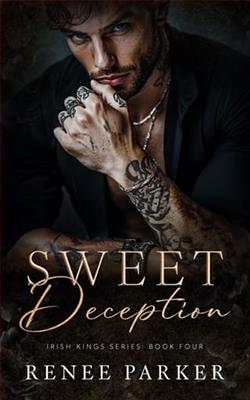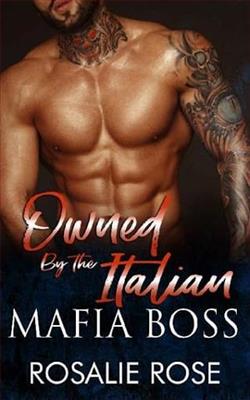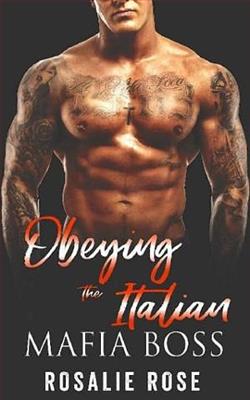Page 11 of The Strawberry Thief
Friday, March 17
Off he goes, with the sharp little nod that I used to find so forbidding. Now I know him better, and I understand that he mistrusts warmth; shies away from friendliness. Being Francis Reynaud is to be in perpetual conflict between instinct and self-discipline; resistance and abandon. I used to fear and hate him so much, in the days when Anouk was small. Now I have more sympathy. There is darkness in Reynaud, but he is not a bad man. If he were, Rosette would know. Rosette sees further than I do.
I’ve noticed that, since Narcisse’s death, Rosette has been more withdrawn than usual. Usually she likes to help in the shop, but for the last few days she has been aloof, unreadable, even to me. I find myself searching for her thoughts, scanning her colours for a sign of something that may give me a clue as to how I may reach her, but she remains a mystery, a puzzle never to be solved.
This afternoon, while Reynaud was here, she was drawing in the book she takes almost everywhere with her. A hardback sketchbook, a gift from Anouk, in Anouk’s favourite colour. I found myself admiring the way in which my daughter creates these images: the sure, economical strokes of the pen or pencil. The lines seem almost random at first, and yet each stroke has a purpose. She must get her talent from Roux, who is always so clever at making things. I always assumed that my daughters would inherit my way with chocolate, but neither Anouk nor Rosette have shown any particular interest. Rosette has her drawing; Anouk’s special interests have become less clear to me over the years. Some of this is due to Jean-Loup Rimbault, a young man with ambitions and dreams, as well as a serious heart complaint that has been with him since childhood – he is often in hospital, and I sometimes fear for my little Anouk, placing her own heart so firmly between his delicate fingers.
I never had relationships: I always feared their loss too much. Even Roux – so much more than a friend – is still not quite a partner. Our arrangement is one that suits us both, and if it sometimes feels a little lonely, a little strange, I tell myself it’s better this way. I can concentrate on Rosette.
‘What are you drawing?’
Rosette did not reply, but continued to draw, nose almost touching the paper. It was a more complicated scene than the ones she usually favours: drawn mostly in pencil, but with certain details highlighted in colour. A little girl was trotting down an overgrown path through the forest. The little girl looked like Rosette as she often draws herself – as a child of seven or eight, with mango-coloured corkscrew hair – wearing a Little Red Riding Hood cloak and carrying a basket of strawberries. Behind her, on the path, a wolf: nose to the ground, eyes shining; sleek and dark and menacing. The wolf’s eyes were narrow and deceptively sleepy, and Rosette had used a bright red pencil to fill in his giant shadow, a shadow so long that it filled half the page.
Something about that picture made me feel slightly uneasy, as if it held some kind of message. Many of Rosette’s pictures do, but this one seemed closer to some of the dreams I used to have when we were living in Paris. A change from Rosette’s usual style. Change always makes me uneasy; it means the wind is on the move. And we have refused its call for so long. It has been years since we answered it. And yet I still hear it, calling me, its voice no longer cajoling, but openly, darkly threatening.Thought you could hide from me, Vianne Rocher? Thought you were safe in your little house? I can take it all away. Anouk. Rosette. I’ll blow your house down.
I glanced at Rosette’s picture again. I couldn’t help thinking that maybe it was intended for me, a warning of something – perhaps a fear – that she could only express through art. It looks like an image from the Tarot cards left me by my mother; graphic, filled with significance, laden with secret menace.
The Hurakan was blowing.
No. My child is safe from the call of the wind.
‘What’s that, Rosette?’ I said.
For a moment I thought she might tell me. She looked up from the drawing, her eyes meeting mine for a moment, then her gaze skipped sideways towards the newly purple door of the shop that used to be a florist’s, but might be almost anything—
‘Rosette?’
I looked at the newly painted door; the paper across the windows. There was nothing to suggest anything strange about it. Except perhaps for the barest filament of light at the door; a smudge of something that might have been a shadow, or a reflection—
I know she’s curious. I am, too. And I know she thinks we should have called round, taken the new owner a gift. But things have changed since I first arrived in Lansquenet on the skirts of the wind. Experience has taught me that it is sometimes best to be cautious. But Rosette is seldom cautious. It strikes me that perhaps she has seen something through the window. Maybe she has already met the elusive occupant—
‘Did you go in there?’ I said. ‘Did you visit Narcisse’s shop?’
Rosette does not always reply when I ask her a question. But now I thought her lack of reaction seemed a little too deliberate. She picked up a dark-blue pencil and worked at the shadows in her picture, drawing them into twisted vines of unnatural regularity.
‘What kind of shop is it, Rosette? Did you see the new manager?’
Rosette never lies. But her silences are often more telling than words. She has seensomething, I’m sure of it. Something that has troubled her. The image in her drawing; the wolf with the long red shadow, the tangle of vines – all this suggests that she is trying to make sense of something too complex to unravel in any of the usual ways. I have my chocolate, she has her art. Both are forms of divination.
‘Listen, Rosette. I want you to stay away from the new shop. Don’t go there alone. Don’t try to look in. Wait until I’m ready. Then we can go there together, maybe take the owner some chocolates …’
She gave me a darkling glance.
‘I know. But remember, people don’t always like visitors when they’re settling into a new place. Promise me you’ll wait, Rosette. Don’t go into that shop alone.’
She made no direct reply, but instead gave a little magpie-call, then closed her drawing-book with a snap and headed out into the street like a child into a forest.
3
Friday, March 17
I didn’t tell Maman about the lady in the window-glass. I think it’s for the best. She’d only worry, and besides, there’s no reason to believe that what I saw was an Accident. Accidents are noisy things. Like in Paris, when I was small, and things used to fly through the air and smash if ever I got too upset. Those days are gone now. I know what to do. I put my finished drawing away and left again by the half-open door.
Reynaud’s visit had made me want to go and see my wood again. I like saying that.Mywood.Mystrawberry clearing. My path. My trees. My fence. My wishing well. Those things are mine now, Reynaud said. Not Roux’s, not Maman’s, but mine. Mine to do what I like in. Sometimes all I want to do is be alone; to sing, to shout, to run about, to talk to myself in my shadow-voice. And now I can do that whenever I want. The wood, the clearing, and the well – they are all mine to play with. I am no longer a trespasser. I am the guardian of a sacred place.
That’s what I was thinking as I walked across the fields towards Narcisse’s farm, and the chain-link fence. It was late in the afternoon, but the sun was still warm, and the birds were singing everywhere. I didn’t need to hide any more, or crawl under the fence, but I did, out of habit, and because I still don’t have the key to the gate, and because I like it when people don’t know where I am. I can do what I like when I’m here, and not worry about Accidents.
Bam went ahead. He always does; laughing and flying into the trees. I don’t need to worry about him here. He’s free to do whatever he wants. A flock of black birds flew up out of the trees with a sound like scattered applause. I called to them in my blackbird-voice, and ran to the strawberry clearing.















